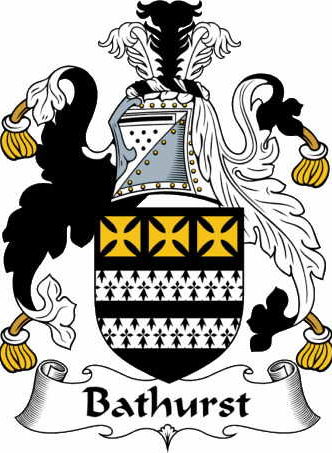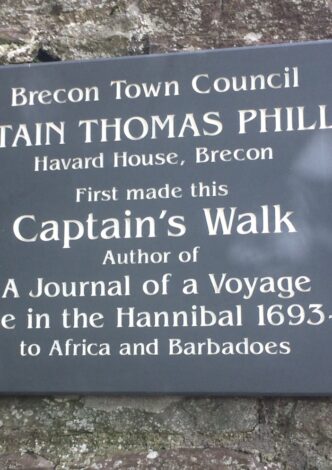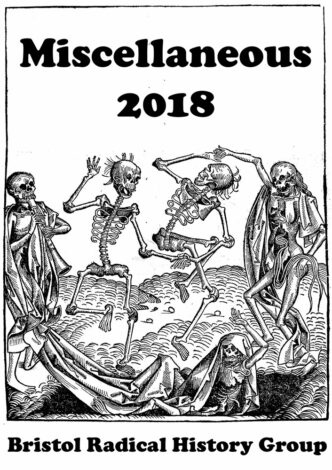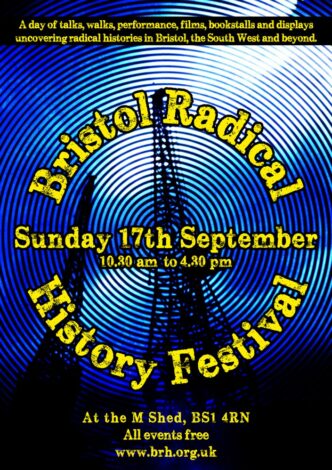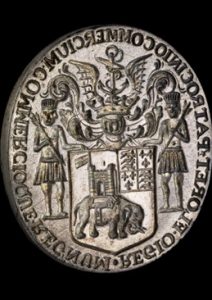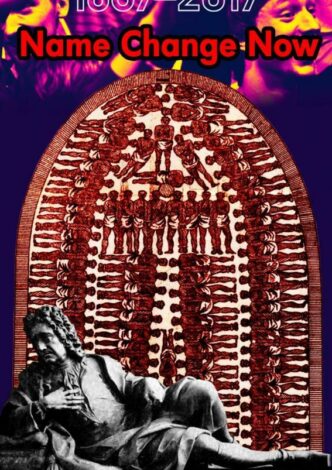1754 – 1831 Lydney Town Council has attempted to ban a Black Lives Matter event arranged to take place in Bathurst Park, Lydney at 2 pm – 4 pm Saturday 20 June. Forest of Dean Black Lives Matter has issued a statement on their Facebook Page which includes the following: We cannot continue to allow this oppression in our society; the primary purpose of this event to begin with was to challenge this and to encourage change, it is sad that you have prevented from us doing so. We do not wish to, and […]
In the Welsh town of Brecon, upon an old wall, along Captains Walk (a name based on a fiction), is a slate plaque commemorating the life of a slave trader who resided in the town. The plaque was commissioned by Brecon Town Councillors in 2009, erected in October 2010 (during Black History Month), and makes no reference to the fact that Captain Phillips was a 17th century slaver. Captain Thomas Phillips was the commander of the infamous slave ship the Hannibal in the 1690s. He was directly […]
In the summer of 1846 the famous American abolitionist Frederick Douglass took to the stage of the Victoria Rooms in Bristol, enthralling his thousands-strong audience with vivid denunciations of slavery. He was feted by the mayor and received great support from the people of the city, maintaining friendships with many of those he met for the rest of his life. Douglass biographer Laurence Fenton will discuss the background to and details of the great abolitionist's visit to Bristol in a talk at […]
 Not A BRHG Event
Not A BRHG Event
11.30am Redcliffe Caves, Phoenix Wharf, Redcliffe Way, Bristol BS1 6SR Walk ends at Bristol Cathedral at 1.30pm (approx.) After popular demand the Countering-Colston group are re-running their recent history walk. Starting with St Mary Redcliffe church, this walk takes in other historic Diocese of Bristol churches in the city centre where ‘the life and work’ of Edward Colston is still provided religious legitimacy on an annual basis. Along the way we will share the most recent historical […]
 Not A BRHG Event
Not A BRHG Event
Artists’ video installation at the Bearpit, (underpass to Broadmead shops) St James Barton roundabout, BS1 3LY Shot in landscapes of Eastern Nigeria, Nevis & Greenbank cemetery Bristol UK, played on a loop in the Bearpit unfolds a human story in a trilogy of artist video film shorts that renders visible three generations of 18th century African women from one family separated by the transatlantic trade in human trafficking; Fanny (Fumnanya) Coker, her mother Igbo Polly (Adaeze) & […]
 Not A BRHG Event
Not A BRHG Event
An international team of artists and film-makers are working together to resurrect the voices of three generations of women impacted by British slavery in a digital installation: Daughters Of Igbo Woman. Events will take place in Bristol at Georgian House Museum and Greenbank Cemetery in August and the Bearpit in October this year, accompanied by school workshops. Daughters of Igbo Woman is supported by Arts Council England, Bristol Culture and Journeys to Justice. Ros Martin, Project Director […]
A series of 10 minute 'taster talks' covering recently or soon to be published Bristol Radical History Group texts. These include: Lady Blackshirts: The Perils of Perception – suffragettes who became fascists [Rosemary Caldicott] During the 1930’s a small group of ultra-nationalistic women, who considered themselves feminists, joined Oswald Mosley’s British Union of Fascists. Surprisingly some of these women were former high ranking members of the suffragette movement. The Smoke-Dragon and How […]
Starting with St Mary Redcliffe church, this walk takes in other historic Diocese of Bristol churches in the city centre where 'the life and work' of Edward Colston is still provided religious legitimacy on an annual basis. Along the way we will share the most recent historical research regarding this man's involvement with the transatlantic slave trade and discover how the Victorian elite created a 'cult of Colston' that is now said to form part of our city's 'identity'. At our final stop, […]
Introduction This research article is an examination of the Royal African Company (RAC) and the role of Edward Colston (b. 1636 d. 1721) within the organisation as both an investor and executive. It is unsurprising that this history has not been previously collated in this form as Colston still retains a popular status amongst sections of Bristol’s population as a philanthropist and ‘city father’, his memory protected by powerful civic organisations. Although the depiction of Colston as a […]
Introduction Edward Colston was an investor, official and eventually deputy governor of the Royal African Company (RAC) from 1680-92. Over this period the RAC purchased and transported tens of thousands of enslaved Africans across the Atlantic into a life of hard labour. This article aims to answer number of questions about the RAC’s involvement in the slave trade in particular during Edward Colston’s tenure. These questions are: How many enslaved Africans were purchased by the RAC between 1680 […]
